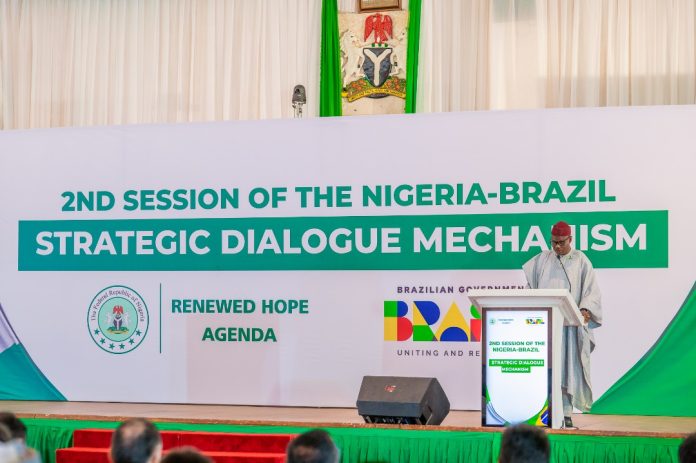By Emmanuella Oghenetega
The Federal Government has boasted of increasing health insurance coverage by over 15% in the space of a year, while reaffirming its commitment to achieving Universal Health Coverage (UHC) and unlocking the nation’s healthcare value chain, through strategic global partnerships, with a specific focus on Brazil’s health system model.
Delivering remarks at the 2nd Session of the Nigeria–Brazil Strategic Dialogue Mechanism on Tuesday in Abuja, the
Minister of State for Health and Social Welfare, Dr. Iziaq Adekunle Salako, outlined several key reforms and achievements under the President’s Health Sector Renewal Investment Initiative (HSRII), while proposing a formal framework for deepening Nigeria–Brazil health cooperation.
Dr. Salako said the Tinubu administration’s health reform is anchored on four pillars, effective governance, equitable quality health systems, unlocking healthcare value chains, and strengthening health security with digitalisation, strategic financing, and workforce transformation as cross-cutting themes.
“President Tinubu’s administration is prioritizing the health sector through expanded budget allocation, a 52% increase in two years and the implementation of 21 strategic policies aimed at strengthening the health system and promoting local pharmaceutical manufacturing,” Salako said.
He outlined major Milestones, such as:
Primary Healthcare Revitalisation: Over 37 million Nigerians reached as of Q1 2025; Health Insurance Expansion: Coverage rose by over 15% in one year, with new schemes for vulnerable groups and catastrophic health needs; a Reform of BHCPF: Improved transparency and timely fund release.
Salako emphasized the importance of learning from Brazil’s Sistema Único de Saúde (SUS), which provides free healthcare to 70% of Brazilians and has achieved a 77% reduction in infant mortality since 1990.
“Brazil’s family health and oral health teams model, success in generic drug legislation, and globally recognized pharmaceutical capacity offer strong templates for Nigeria’s own reforms,” he noted.
Dr. Salako also spotlighted the NASENI-Troment Biotechnology Factory as a “practical demonstration” of the success of Nigeria’s local manufacturing policy, calling it one of several transformative initiatives under the current administration.


